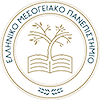History of the Department
In its nearly fifty-year long journey, the Department of Mechanical Engineering has managed to establish itself as a reliable pillar of education, research, and provision of services to society as a whole, largely thanks to its constant development and evolution.
Some important landmarks in the course of its development are the following:
- Its evolution into a Technical Education Institute (TEI) Department with a three-year study program (1983);
- Its integration into Higher Education with a new 4-year study curriculum (2002);
- Its evaluation by an external evaluation committee (2008). It was one of the first five Greek University Departments to be evaluated by an external evaluation committee.
- The inclusion of Master’s Degree programs (2012);
- Its evolution into a Department offering five-year study programs, and the inclusion of a Ph.D. program (2019);
In the course of these events, the Department:
- Produced graduates that include: senior technical and management executives working in production and the public sector; renowned businessmen/businesswomen; educators; several professors in Greek and foreign universities;
- Established multifaceted cooperation with several companies;
- Completed important research and development projects;
- Developed relations with similar Departments abroad;
- Hosted a large number of students and helped many of its students study in different countries in the framework of the Erasmus program.
Mission of the Department
The mission of the Department of Mechanical Engineering of the Hellenic Mediterranean University has three objectives:
Α. High level of education
The Department aims to offer high-level education based on the following central axis: Provision of comprehensive scientific knowledge with courses that contribute to the development of the scientific field of Mechanical Engineering. Within this framework, it offers extensive and in-depth courses in Mathematics, Physics, Materials Chemistry and Computer science, similar to those offered by other renowned Greek and European Departments. It also provides courses in Basic Engineering that are just as in-depth and extensive as those of the aforementioned departments. Lastly, it provides majors that combine traditional specialization courses with entirely new and modern ones.
Β. Research in important scientific fields
The Department has established strong research teams through the Master’s Degree programs it co-offers. These teams conduct research on the topic of Energy with an emphasis on renewable sources, as well as on advanced production systems with an emphasis on CNC machines and robotics. In the future, they are expected to be strengthened even more with the full development of the Ph.D. Program of the Department, as well as the inclusion of new high-profile Teaching and Research Staff members.
It should also be noted that the Department houses several high-level laboratories and has developed a “laboratory culture” over the years. In this environment, in addition to the research conducted, the design, development, and manufacture of machines and devices is also facilitated, often with great success.
C. Connection to society
The Department has already undertaken and participates in many cooperation programs with its social partners to address and solve various existing problems. It has realized that these efforts can accomplish multiple goals:
- Students and Teaching and Research Staff members can jointly face existing production problems;
- The Department can receive feedback from its social partners on the quality and content of the education provided;
- The Department can find employment positions for its graduates.
